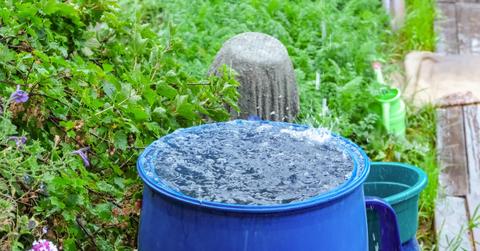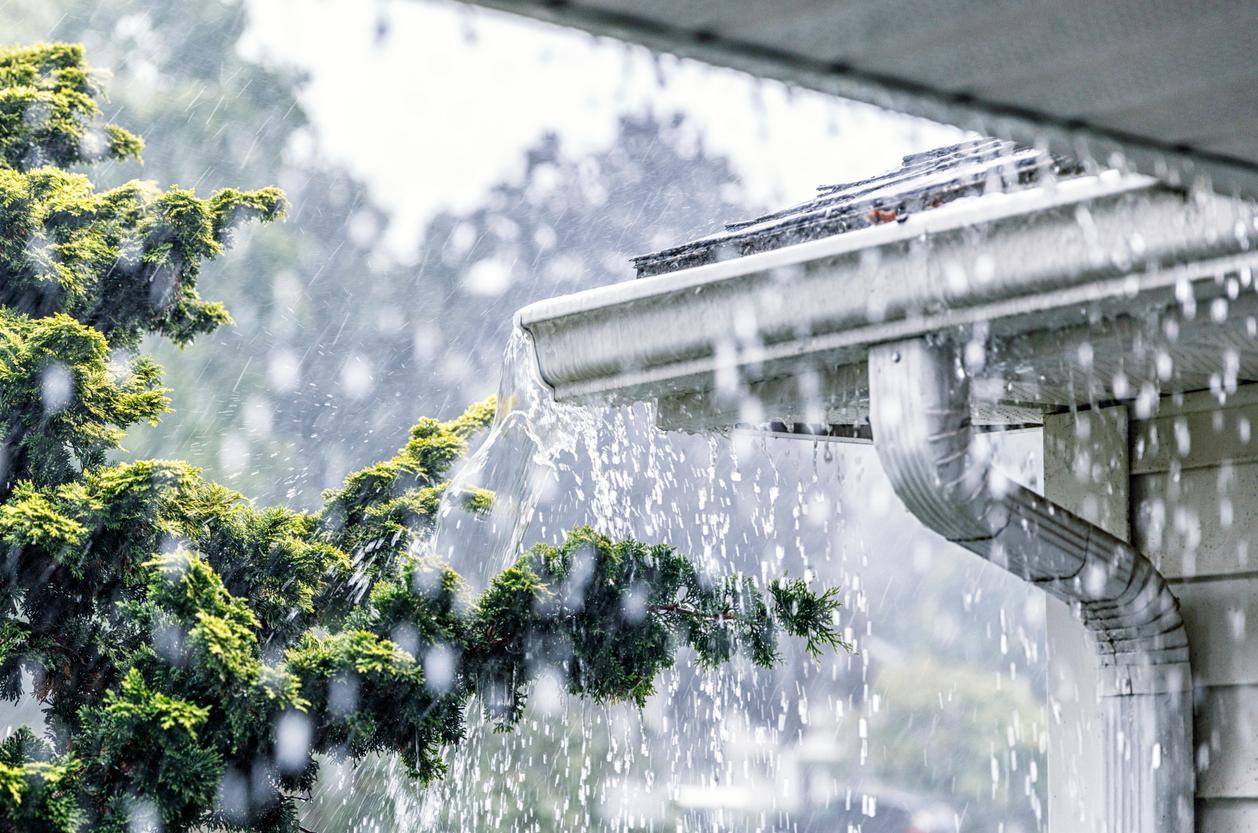Is It Illegal to Collect Rainwater? Why Some States Don’t Allow It
Published Dec. 8 2023, 10:46 a.m. ET

The Gist:
People collect rainwater for various uses, such as gardening and cleaning.
Before filling up your rain barrel, make sure your area doesn’t have any restrictions in place.
When legal, collecting rainwater is an excellent way to practice sustainability.
Humans are made up of 60 percent water, according to the U.S. Geological Survey, which is why access to fresh water is a precious and necessary resource. Yet, in some places, it can be illegal or severely restricted to collect rainwater.
Why is it illegal to collect rainwater? Well, depending on where you live, it might not be. Some U.S. states have restrictions in place, but others allow you to fill rain barrels as you please.
Before harvesting rainwater, it’s important to determine whether or not your state is one with regulations. Keep reading to learn more about rainwater collection, its purpose, and where it’s illegal.
Is it illegal to collect rainwater? Technically, collecting rainwater isn’t against the law.

There are no federal laws stating that it’s illegal to collect rainwater. However, that doesn’t mean that there are no rules surrounding the activity — it just means that these regulations are determined state-by-state, according to the Department of Energy.
It might seem odd to restrict such a seemingly random practice in the first place, but there’s a logical reason behind it all. Most of the locations with rules in place state that they are to help protect the natural cycle of rainwater, according to WOOD-TV. The main concern is that if too much rain is collected, it could disrupt the process of seeping back into the ground.
Despite restrictions, many people still collect rainwater for watering plants, cleaning (only items not used for eating or cooking), and even flood management. According to ScienceDirect, if your backyard is prone to flooding during periods of heavy rainfall, having a rain barrel can help catch some of that precipitation.
When using the water you’ve harvested, it’s essential to take steps to prevent illness, according to the Centers for Disease Control and Prevention (CDC). Rainwater isn’t exactly clean — it’s filled with germs and other contaminants like asbestos, smoke, dust, and more.
Where is it illegal to collect rainwater?
To make information more accessible, the Federal Energy Management Program created a map that details each state's rainwater collection rules. The map also explains whether or not harvesting is encouraged or incentivized.
States like Colorado and Nevada are considered “very limited.” This means that people are allowed to collect rainwater, but only under specific circumstances.
On the other hand, in Wyoming, North Dakota, South Dakota, Nebraska, Kansas, Louisiana, Wisconsin, Michigan, Indiana, and Maine, there are no regulations or information regarding rainwater harvesting whatsoever.
Some are free of restrictions, but unlike the previously mentioned areas, they provide resources that educate and encourage citizens to collect. The following states follow this framework: Montana, Iowa, Missouri, Mississippi, Alabama, Tennessee, Kentucky, West Virginia, Pennsylvania, New York, New Hampshire, Massachusets, Connecticut, Rhode Island, New Jersey, Delaware, Maryland, South Carolina, and Florida.
Plenty of locations are without restrictions, but a few still implement rules. However, this doesn’t mean that these states are against rainwater harvesting — in fact, many of these areas provide incentives and even encourage participation. For example, Washington is willing to reduce stormwater management fees, and Georgia offers a tax credit.